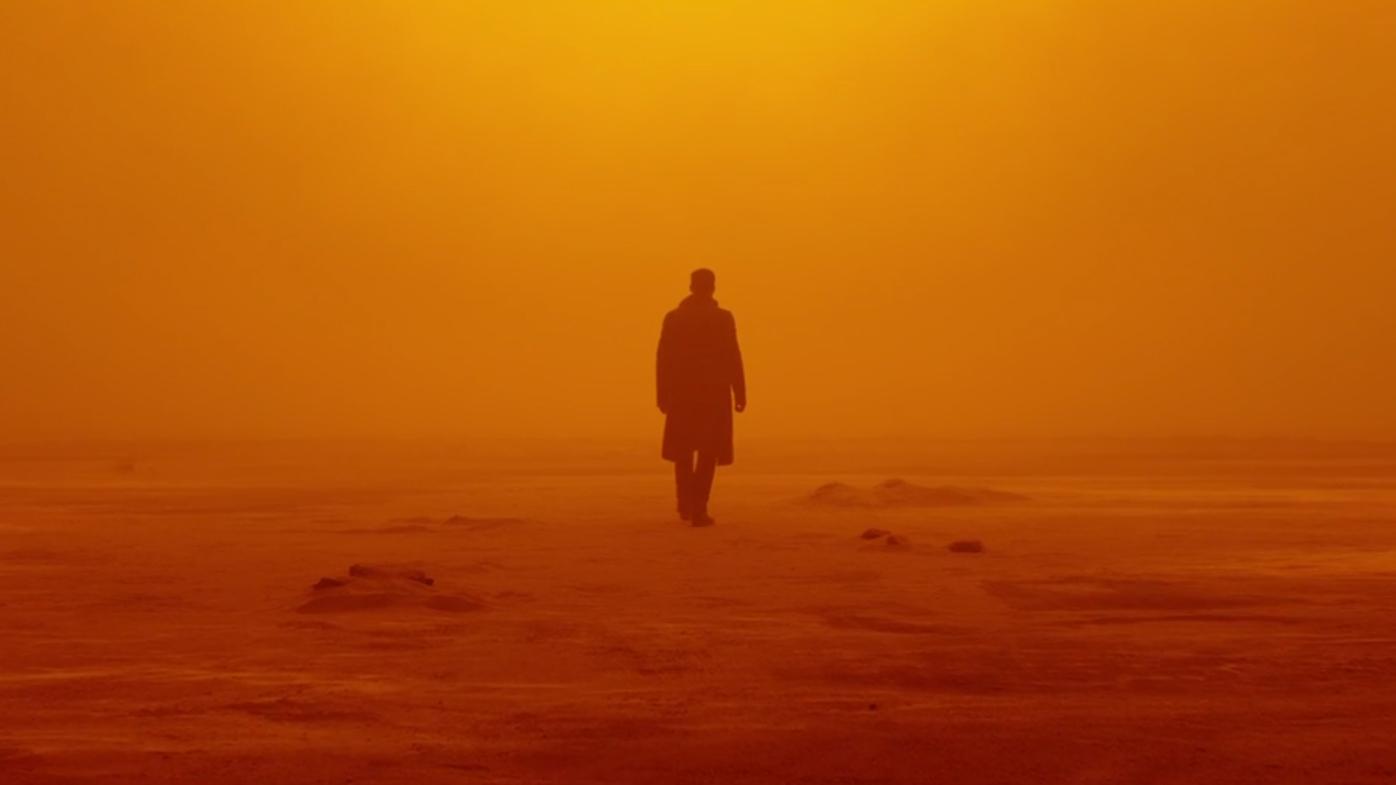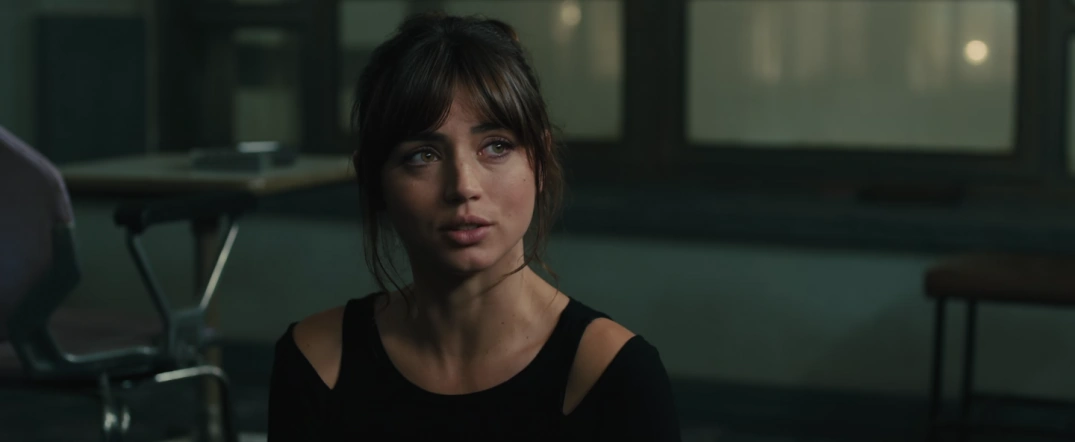I think for most film fans,
Blade Runner is one of
the seminal films. Mis-understood on its release, the cult science-fiction classic has become one of the cornerstones of the genre and regarded as one of the best films of all time. For a time, I would have echoed similar sentiments. I saw it in my early teens and it just blew me away. The visuals, the music, the cinematography. I became fascinated with the world and it led me to the works of Philip K. Dick, still one of my favourite authors. Then there was the fraught story behind the production of the film - the long shoot, the studio meddling, the various different cuts. I became obsessed with
Blade Runner. I've cooled off towards it in recent years though. The difficult production meant that certain elements couldn't be as fleshed as they might have been and I think this hurts the narrative of the film significantly. All the pieces are there, it's just assembled in an odd way that makes the overarching plot unsatisfying. That said, as a mood piece,
Blade Runner is phenomenal - so it's a mixed bag but a very positive mixed bag. So when I heard there were plans for a follow up, I actually welcomed the idea. There's a lot that could be done to expand upon and improve the groundwork laid out by the original film. Better yet a
real filmmaker, Denis Villeneuve of
Arrival fame, was selected to helm the project. The good news is that
Blade Runner 2049 is just about the equal of the mighty original and probably does some things slightly better...
 |
| The gorgeous and huge Blade Runner 2049 is a must see for any film fan |
Blade Runner 2049 is set 30 years after the events of the original film. The outlook of the world is only looks bleaker. We follow a new blade runner, simply called 'K' (Ryan Gosling) (no relation to the men in black), who also happens to be a replicant. See in the thirty years since the original film, the Tyrell Corporation collapsed and was acqutionised by a new company, led by the mysterious Niander Wallace (Jared Leto). Wallace has led a revolution with a new line of replicants, who are programmed to always obey. However, blade runner units are still needed to mop up any of the older, potentially dangerous models that still exist in the world. So K goes on a standard mission to hunt down a older replicant camped out at a farm (played by Drax the Destroyer, Dave Bautista). After a violent confrontation, K uncovers a box of bones under one of the few remaining trees in the world. It is revealed that the bones belonged to a replicant. Stranger still, the replicant was pregnant at the time of her death, which is unheard of. With potentially earth-shattering implications, K is ordered to investigate further and hunt down the potential child that the replicant gave birth to...
Blade Runner 2049 excels in certain areas that the original lags on. For starters, the film does an excellent job of re-creating the look of the original film - the expressionistic lighting choices, the dark rain-filled city (though it snows a lot these days as well) lit up by neon lights and the synthesiser heavy soundtrack are all present and accounted for.
2049 also makes use of long, slow and technically complex shots that allow us to take in the atmosphere of the world. I imagine this will put some audience members off and maybe why the film isn't doing so great at the box-office. For everyone else though, it's a chance to soak in some huge, quality filmmaking. The world feels even more drained than the original, as a blanket of snow and fog often fills the frame.
2049 also takes us out of the city. I love the bold decision to completely contrast the opening of the original, the famous wide shot of the terrifyingly beautiful dystoptian city scape, with flat, misty, grey farmland. The reveal of the landscape and tracking shots are pretty much identical. With an excellent visual base, the fact that
2049 takes the next logical step in the story and develops elements only hinted at in the original film is to be marvelled at.
 |
| The world of Blade Runner is lovingly recreated, yet also manages to expand upon it |
At the centre of the new story is K, played to perfection by Ryan Gosling. Some have made fun of his doe-faced performance based on the trailers (RedLetterMedia's is particularly brilliant) but in the context of the film it is actually appropriate. My main issue with the original film is that Rutger Hauer's Roy Batty was the most interesting character but he wasn't the film's main focus. That belonged to Harrison Ford's Rick Deckard. Deckard doesn't really have much of character arc, at least not until the final 5 minutes or so, while Batty is the truly interesting one. Fortunately,
2049 learned from the original and put K very much at the centre. Without giving too much away, his character arc is fairly brilliant on both an existential and thematic level. As a replicant, he has to put up with a lot of abuse and what can only be described as racial slurs. Even amongst the police department, he is seen as being a bit of an outsider. This gives him severe motivation when the mysteries of the central plot kick in and that he could be something more than what he was programmed to be.
 |
| Ryan Gosling provides a real core to Blade Runner 2049, something that the original lacked to a degree |
The exploration of memories is the poignant centre of the film. I re-watched
Blade Runner very recently in preparation for the new film and this is the element I most wished was elaborated on further. How are the replicants' memories formed? Where do the memories come from? Are they artificially created or do they come from real experiences? Fortunately, this is at the centre of
Blade Runner 2049. There is an excellent scene in which K meets the creator of replicants' memories, Dr. Ana Stelline (Carla Juri). This is a fascinating new dimension to the creation of the replicants, making the world's mythology richer and the thematic concerns deeper. We also spend more time with the villains. Jared Leto's blind Wallace is a fascinating character and a far cry from the warmth and mad genius of Tyrell. Here we actually see the birth of a replicant, brought into this world by a cruel and uncaring 'God', who only sees replicants as slaves. His problem is that he can't produce replicants quick enough. He learns that K is hunting down a child birthed by a replicant and stops at nothing to acquire it. His hope is that he can dissect it and unlock the mystery behind replicant pro-creation; thus leading to an ever increasing slave labour population. In this regard,
2049 does what every good sequel should do - expand upon the original, explore new and interesting themes and characters, whilst set in the world that the audience fell in love with in the first place.
 |
| Jared Leto's Wallace is cruel and uncaring towards the replicants he 'births' |
The romance storyline always fell a bit flat for me in the original. Ford and Sean Young famously did not get on at all and this means there's a severe lack of chemistry. Again,
2049 improves upon this element with the addition of Joi (Ana de Armas), a holographic female companion that can be brought and "tells you exactly what you want to hear". K sees her as nothing short of being his girlfriend. Adult isolation is becoming more and more of a problem, so the concept of a digital companion to welcome you when you return home and tell you just what you want to hear is not so much science-fiction but more science-fact. Seriously, these exist already in countries such as Japan, where popular fantasy idol Hatsune Miku exists inside the Amazon Echo (https://www.digitaltrends.com/home/gatebox-azuma-hikari-virtual-assistant-news/). In the West, you only need to look at Siri to get a hint of the way things are going. So,
2049 takes a fairly affectionate look at this concept and manages to comment on our increasingly digital world where concepts such as truth and love can be challenged.
 |
| Surprisingly, the love story between a replicant and a hologram really works |
All things said, despite the many things that
2049 does better than the original, it's still just shy of matching it, for me. I think the difference is that the mood is stronger in the original and that's what sticks with me.
Blade Runner 2049 places more emphasis on the plot, which is fine of course, but a couple of issues do crop up in the third act which brought me out of the experience just a little bit. It's mostly the slightly forced conflict between K and Deckard. I don't want to give too much away and I'll elaborate when people talk to me about the film. I wish the marketing didn't reveal that Deckard would be returning (Ford is genuinely great in this, by the way) but that's not the fault of the film. It just would have added to the mystery a bit more. Plus
2049 doesn't have a character as good as Roy Batty, nor is there a moment as good as his "tears in rain" speech (though
2049 does try). A slight trim to the edit as well wouldn't have harmed either. These are pretty much my only criticisms of the film though. I don't think it's quite the jaw-dropping, flawless masterpiece it is being built up to be but it is an excellent film that begs to be seen on the biggest screen possible.
The fact that
Blade Runner 2049 exists is nothing short of a miracle. The fact that is comes close to matching the original is even more outstanding. In an age of reboots and sequels to long dead franchises,
Blade Runner 2049 actually feels earned. It does a beautiful job of re-creating the visual style of the original and fleshes out the story a bit more. I have some issues with the plot, which mostly pop up in the third act that don't quite add up, but as an extended mood piece,
Blade Runner 2049 is about as good as sequel as you could hope for. It's a dense that has plenty to unpack and think about and I imagine it improves on repeated viewings.




No comments:
Post a Comment